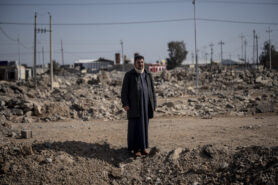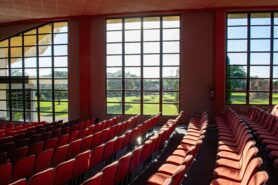In the latest episode of the NIOD Rewind podcast, Dr. Lauren Gould sits together with dr. Solange Fontana to discuss navigating field research in conflict-affected societies. In this episode, Lauren describes how academics are increasingly being restricted in their ability to conduct research in war-affected areas because they are deemed ‘too dangerous’ by universities and ethics committees that follow the risk assessments of Ministries of Foreign Affairs. Lauren warns, however, of the various risks that inherently arise when we can no longer generate first-hand knowledge on how Western military interventions play out in reality on the ground. In an era of remote warfare, one of the risks is that the lived experiences of violence no longer feature in our academic and public debates on war.
As an example, Lauren reflects on how IRW teamed up with Pax for Peace and Iraqi NGO Al-Ghad to conduct large-scale fieldwork on the impact of the US-led Coalition war against the Islamic State in Iraq. Drawing insight from 160 interviews with victims of the 2015 Dutch airstrike on Hawija, the team’s widely publicised “After the Strike” report maps the different reverberating civilian harm effects of remote airstrikes in urban centres. Without such fieldwork, IRW and its partners would not have been able to achieve the same level of public outcry, policy engagement, and legal accountability for the civilian harm done.
You can listen to the podcast below.



